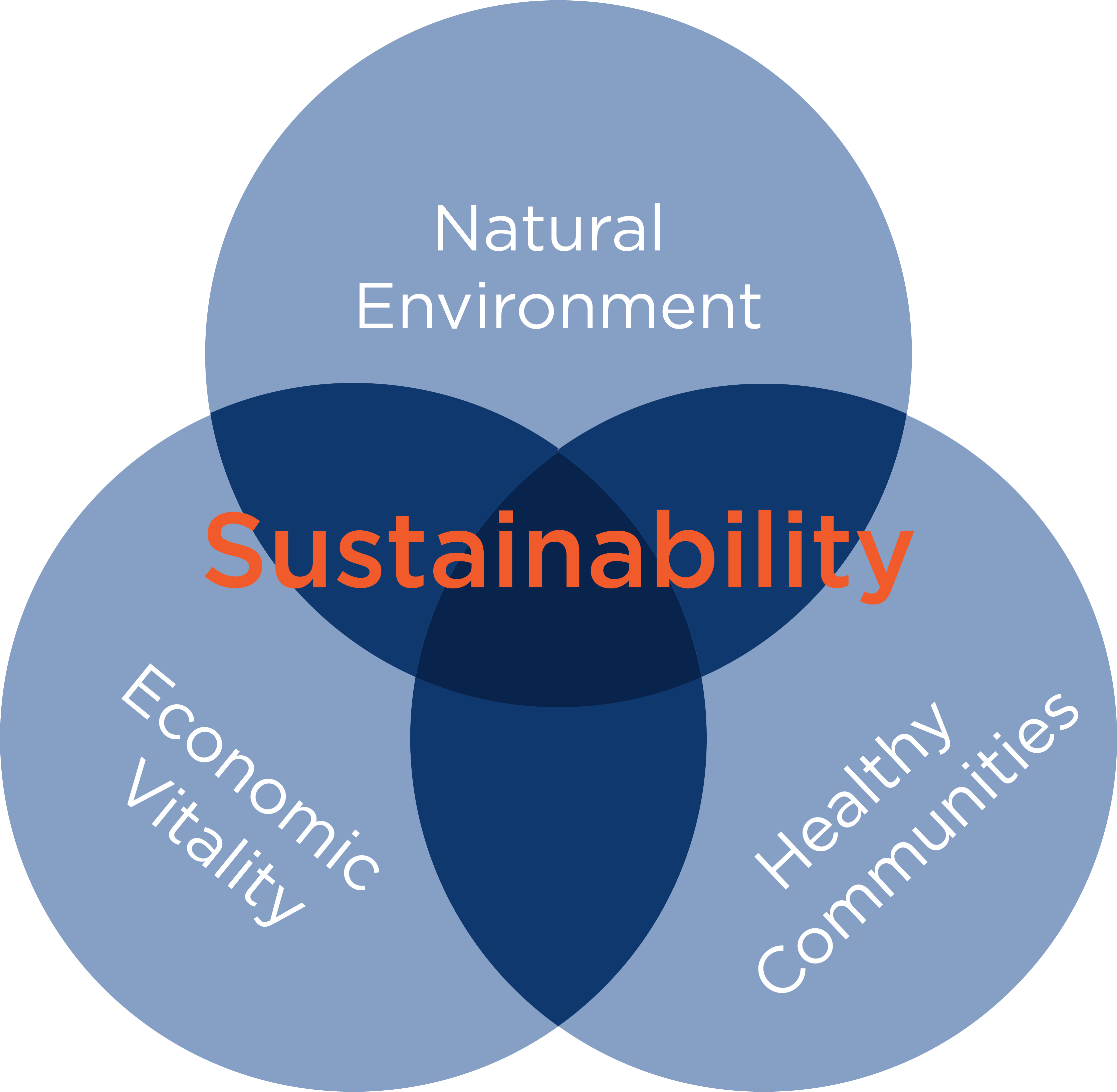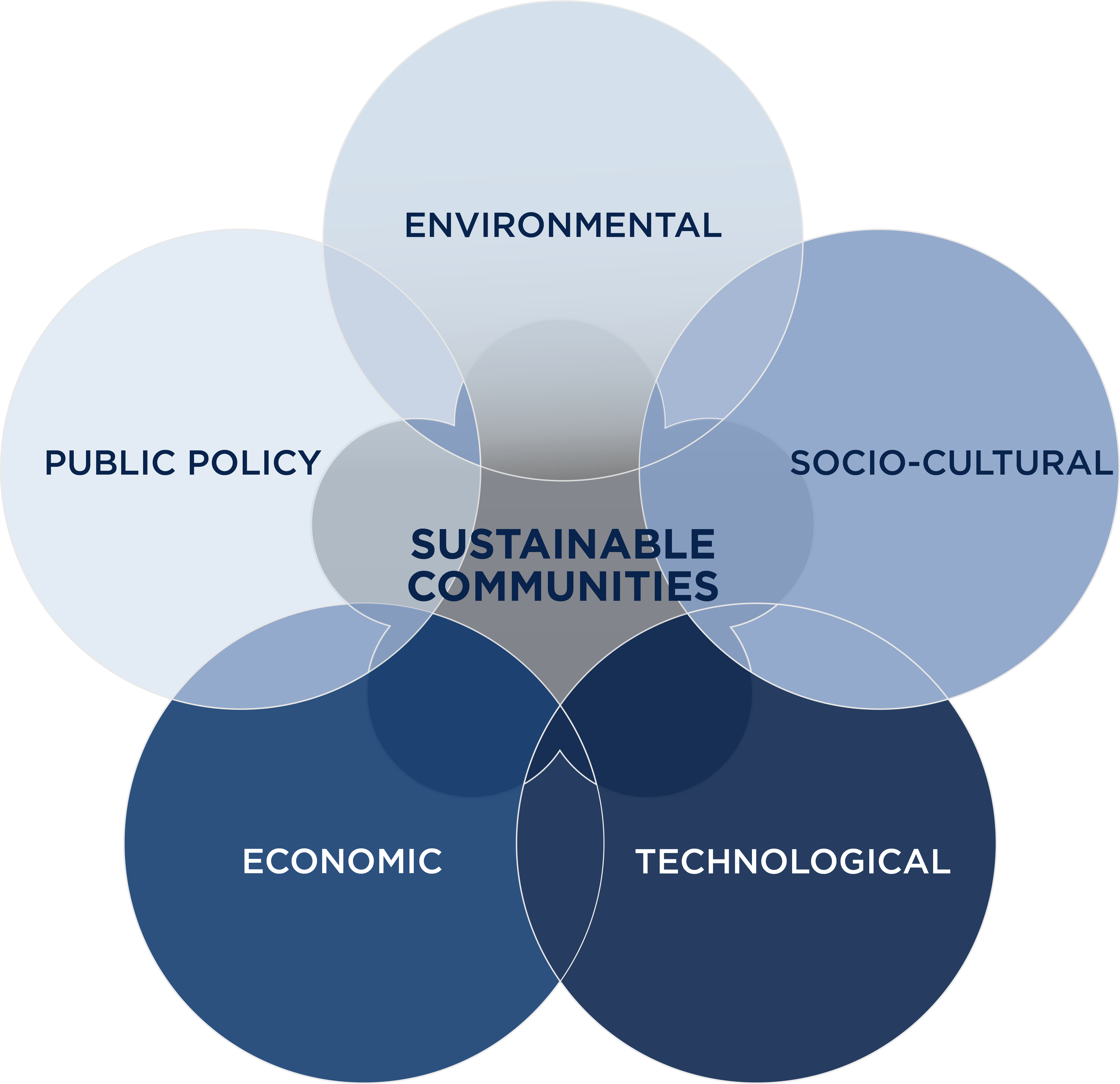What is Sustainability?
 Three Traditional Pillars of Sustainability
Three Traditional Pillars of Sustainability
Sustainability means meeting the needs of the present without compromising the ability of future generations to meet their needs.
The definition for sustainability originally came from the 1987 Bruntland report “Our Common Future” presented to the UN World Commission on Environment and Development.
Sustainability seeks to balance the use of the earth’s finite resources so that future generations can enjoy nature and have the same economic and social opportunities that we enjoy now.
More recently, the definition of sustainability has been expanded to include cultural and political domains as well.
At Mines, sustainability related curriculum, research, and operations are interdisciplinary and connect with environmental, economic, social/cultural, policy, and technological sustainability. For more information, visit “Our Commitment,” which gives more details about courses, research centers and institutes, and campus operations related to sustainability.

Sustainability pillars have recently expanded to include cultural, political, and technological areas.
Key Sustainability Study Areas
Environmental Sustainability – Earth’s environmental systems are kept in balance while natural resources within them are consumed by humans at a rate where they are able to replenish themselves.
Economic Sustainability – Economic opportunity is available to everyone and people are making a livable wage to provide food and shelter for their families. Economic Sustainability is typically dealt with by businesses internally by examining their triple bottom line: people, planet, profit.
Societal/Cultural Sustainability – Healthy communities have just leaders who ensure personal and cultural rights are respected and all people are protected from discrimination.
Public Policy and Sustainability –Typically, sustainable public policy deals with the end of poverty and hunger, better standards of education, gender equality and human rights, the reduction of environmental pollution by corporations and communities and climate change.This area is the most problematic because people disagree over what is environmentally and economically sound.
Technological Sustainability – New technologies are transforming the way we interact with our planet and society and disrupting economies in positive and negative ways. Recent examples include cell phones and artificial intelligence.